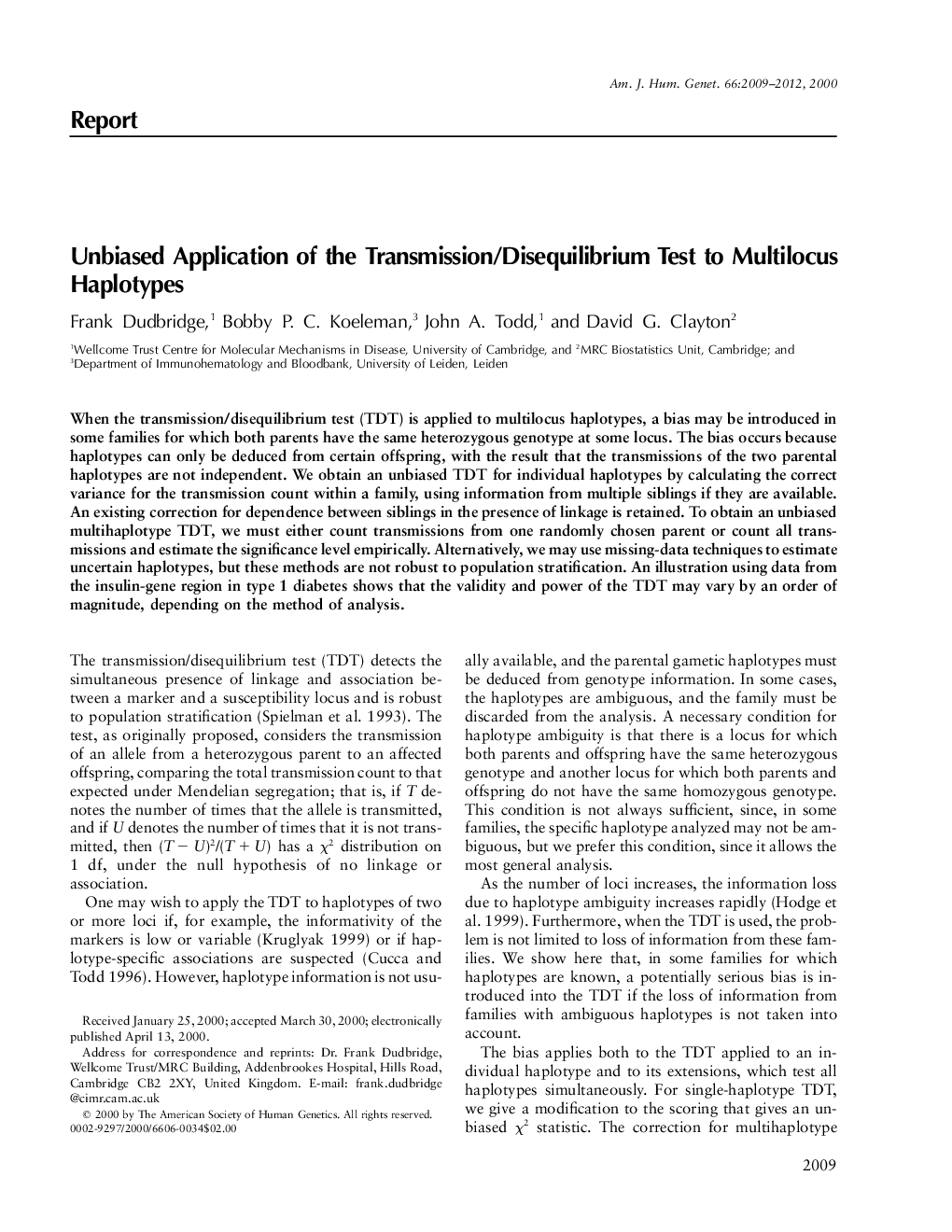| کد مقاله | کد نشریه | سال انتشار | مقاله انگلیسی | نسخه تمام متن |
|---|---|---|---|---|
| 2812621 | 1158865 | 2012 | 4 صفحه PDF | دانلود رایگان |

When the transmission/disequilibrium test (TDT) is applied to multilocus haplotypes, a bias may be introduced in some families for which both parents have the same heterozygous genotype at some locus. The bias occurs because haplotypes can only be deduced from certain offspring, with the result that the transmissions of the two parental haplotypes are not independent. We obtain an unbiased TDT for individual haplotypes by calculating the correct variance for the transmission count within a family, using information from multiple siblings if they are available. An existing correction for dependence between siblings in the presence of linkage is retained. To obtain an unbiased multihaplotype TDT, we must either count transmissions from one randomly chosen parent or count all transmissions and estimate the significance level empirically. Alternatively, we may use missing-data techniques to estimate uncertain haplotypes, but these methods are not robust to population stratification. An illustration using data from the insulin-gene region in type 1 diabetes shows that the validity and power of the TDT may vary by an order of magnitude, depending on the method of analysis.
Journal: - Volume 66, Issue 6, June 2000, Pages 2009–2012